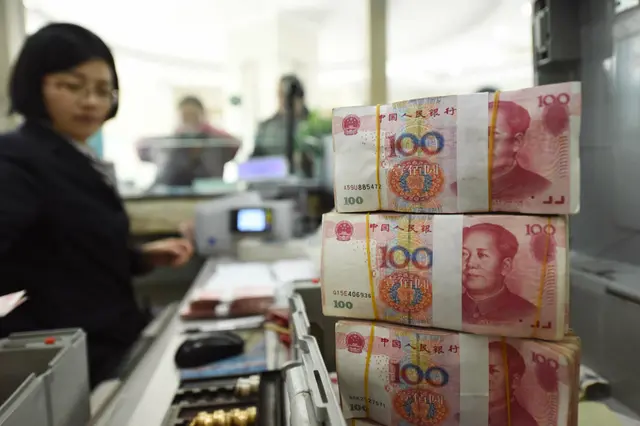Amid heated discussions triggered by a Xinhua commentary released last Saturday, leading international financial media and market experts have expressed confidence in China's determination to defend the value of its currency the yuan against speculative shorting, as well as in the success of its efforts to do so.
Citing the recent engagement between the Chinese monetary authority and some "radical speculators" over the yuan's value, the Xinhua article, titled "Chinese economic transition testing global investors' wisdom, courage," warned that those betting on the "ultimate failure" of the Chinese economy and capital market could face huge losses and potential legal consequences.
According to a Bloomberg Business report, the offshore yuan on Monday halted its drop "after China stepped up verbal defense of its currency to ward off speculators betting on depreciation."
Sean Callow, a foreign exchange strategist at Westpac Banking Corp in Sydney, told Bloomberg that the commentary was a "very clear message to speculators."
"There could be some further tweaking of limits on capital flows, but in the short term the main tools are likely to be steady fixings plus intervention," said Callow while predicting the next moves by the Chinese government.
During last week's World Economic Forum in Davos, Switzerland, some economists spread pessimistic views about the Chinese and global economy, while some financial magnates such as George Soros claimed that they were betting against Asian currencies, triggering worries about intensified short selling on the Chinese yuan and the Hong Kong dollar.
Simon Wang, finance director at the China-based Guoyuan Securities, told the Wall Street Journal that the Xinhua commentary indicated that "restoring market stability has escalated to a matter of national will."
Ken Chueng, a strategist with the Mizuho Bank Ltd headquartered in Japan, said in an interview with Bloomberg that "China won't tolerate sharper yuan declines," which could cause capital outflows, trigger a currency war and hamper the internationalization process of the yuan.
With the Chinese government firm in its stance to stabilize both the currency value and the domestic capital market, yuan shorters seem to be fighting a harsh battle with no hope of winning, a number of experts have noted.
According to the finance editor of Business Insider, the Xinhua commentary is more like a promise than a threat.
"China is not kidding about what it can do with traders," the editor wrote. "Yuan shorts, you've been warned. This is not your market."
There is no doubt that no one would succeed in challenging the stability of the Chinese yuan and the Hong Kong dollar, said China's largest newspaper People's Daily on Tuesday citing a research fellow with the Chinese Ministry of Commerce.
From 1994 to 2014, the yuan continued to appreciate against the U.S. dollar, a trend that lasted for nearly 20 years, with its value sharply rising from 8.6187 to 6.1428. What has been happening since mid-2015 is a small-scale depreciation of the yuan against the greenback, which global investors should not overreact to, and the strength of the U.S. dollar against the yuan won't last long given both countries' economic and trade realities, elaborated the research fellow.
"The yuan shorting attempts have reflected some overseas investors' misunderstanding and misinterpretation of the Chinese economy," Zhang Liqun, a macroeconomic researcher with the Development Research Center of the State Council, or the Chinese cabinet, told the People's Daily.
With the deepening of various reforms and the steady progress of China's new Five-Year Development Program, the room for profiting from shorting Chinese assets will be "extremely limited," added Zhang.
Meanwhile, Ye Tan, a noted financial commentator in China, wrote in an editorial published on the Chinese economic news website NBD.com.cn that the outcome of the battle over the yuan exchange rate depends on how much "policy ammunition" and "policy determination" the Chinese authorities actually have.
And compared with tackling the challenges posed by overseas shorters, it's more important for the government to restore public confidence through more effective reform measures and consolidating the country's economic foundation, said Ye.
 简体中文
简体中文





